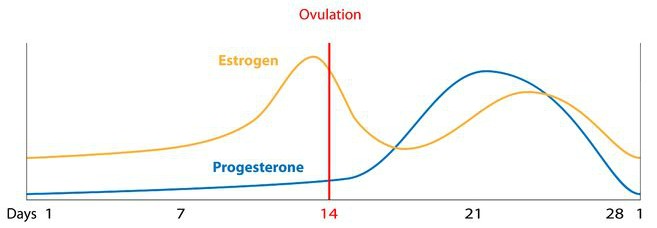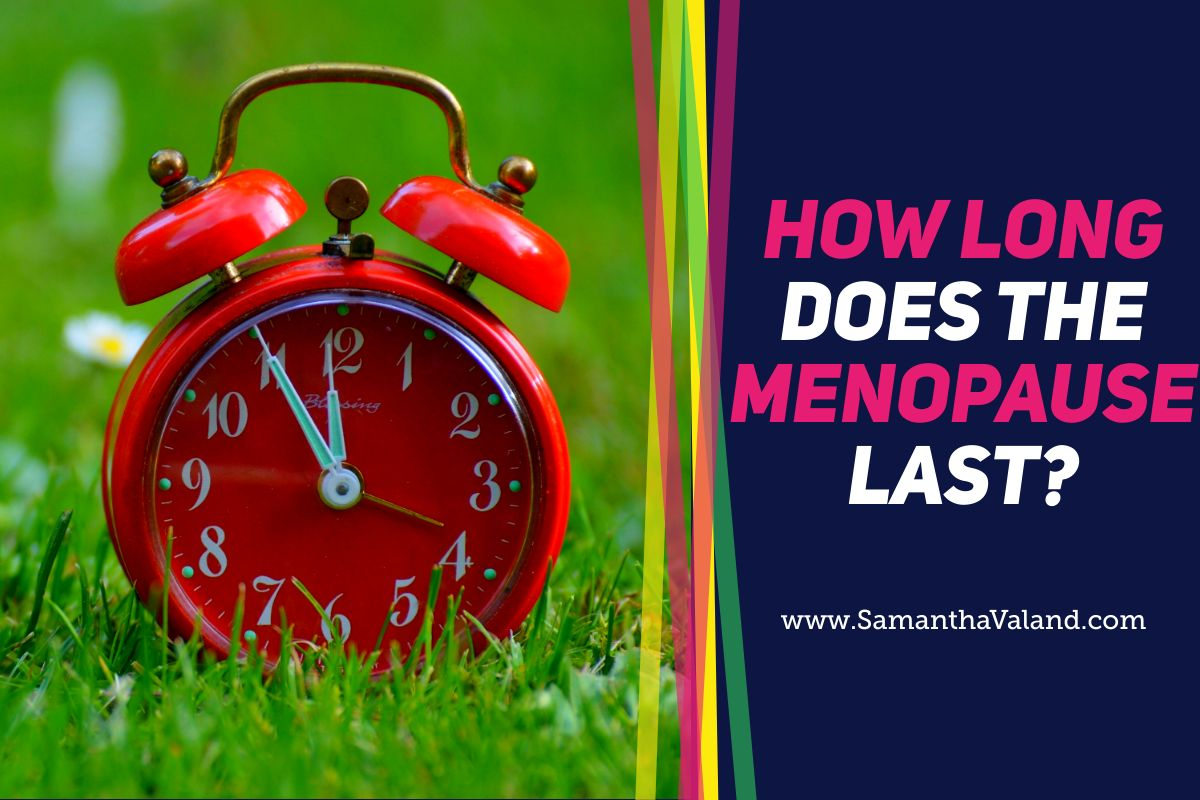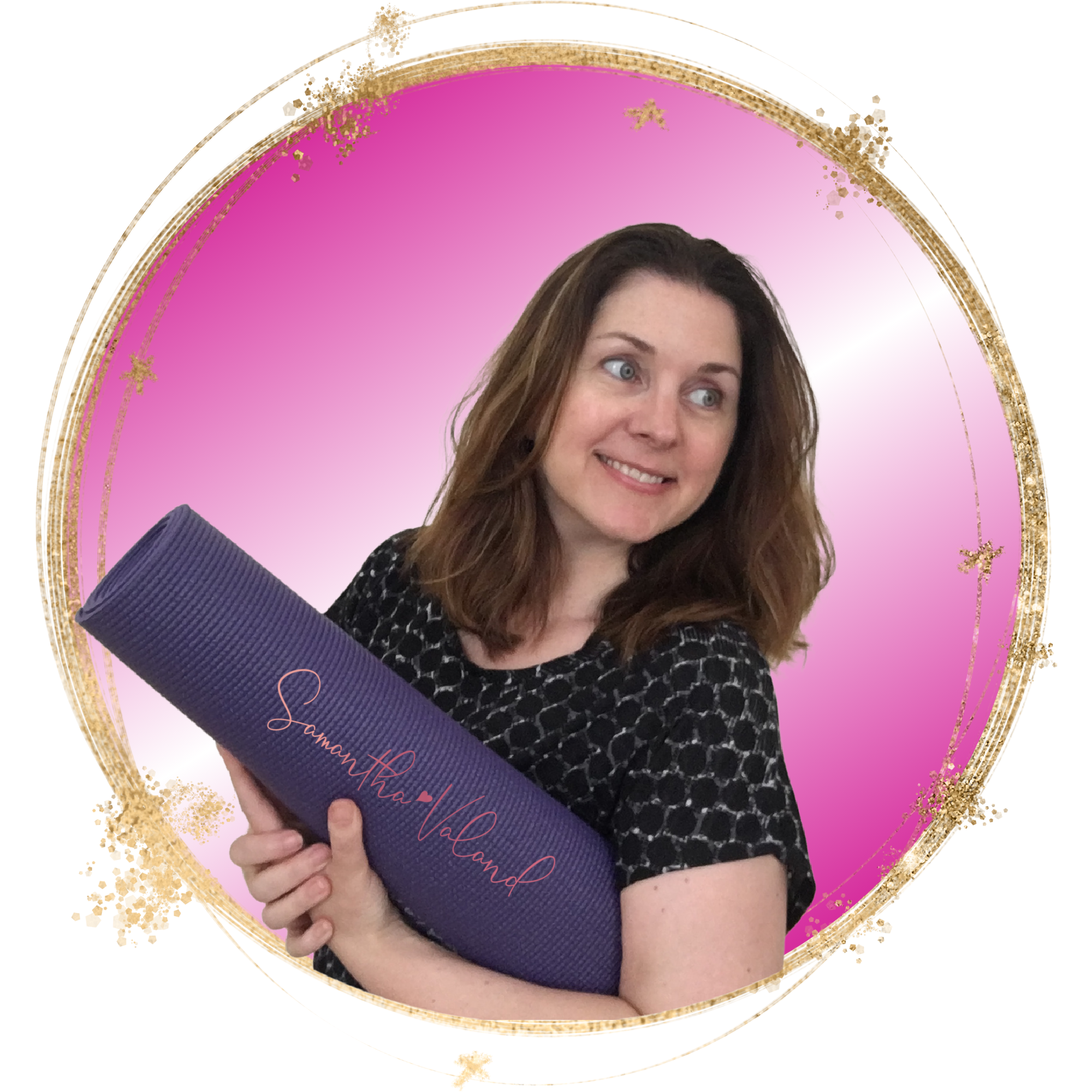Let us start at the end of the menopause as that is easy to define. You are post-menopausal in the UK, when you have had 12 consecutive months without a period. The average age is 51 years. When your menopause starts is a wee bit harder to define as you may have not noticed it starting. This makes the question ‘how long does your menopause last’ hard to answer.
The menopause or peri-menopause can start 6 years before or more in some instances. The symptoms are often varied. Tiredness and weight gain you can easily overlook them as we would often just thing about the ‘big bang’ symptoms such as hot flushes and night sweats.
Speaking to your doctor with your list of symptoms is the first step rather than using Google to self-diagnose. Your doctor will be able to give you advice specific to your medical history. Many ‘natural’ solutions will still interfere with any medication you are taking. It is a good time to talk about HRT with your doctor. It is not suitable for everyone, but does provide relief for many. HRT stands for Hormone Replacement Therapy which contains a low dose of hormones similar to the contraceptive pill.
Common menopausal symptoms are:
- Sleep disturbances, insomnia and/or sleep apnea
- Changes in menstrual periods
- Weight gain
- Hot flashes, flushes, night sweats and/or cold flashes
- Headaches and/or migraines
- Mood swings, depression, anxiety, irritability and/or anger
- Difficulty concentrating
- Aching, sore joints and muscles
- Loss of libido (sex drive)
- Breast tenderness
- Crashing fatigue
- Increase in allergies
It is a varied list of symptoms and many of them can be other medical conditions so do not make assumptions, and go with your gut if you do not think you are menopausal!
Normal menstrual cycle

Our normal (if there is such a thing) menstrual cycle is a month of two halves. The follicular phase starts on day 1, which is the day your period starts. The luteal phase is the second half starting on day 14, which is when you ovulate. The average cycle is 28 days.
The first phase of menopause
In the luteal phase (day 14 to 28), progesterone levels lower. You may start to notice PMS symptoms which may be different to your younger years. Estrogen levels are dominate in relation to progesterone. In the graph above, the blue line (progesterone) will be lower than the yellow line (estrogen) between day 14 to day 28.
The second phase of menopause
Estrogen levels are lowering and you can be estrogen deficient and dominate in relation to progesterone at the same time. Symptoms can be in follicular phase not just luteal phase. In the graph above, yellow line (estrogen) will be closer or below the blue line (progesterone) between day 1 to day 14.
How these two hormones lower in relation to each other is often what we are taking about when we use the phrase ‘hormone balance’.
The third phase
Your periods stop or can be intermittent.
The above is simplified, as there are many hormones that are included in this process. Hormones are not an off/on switch, more of a dimmer switch, that can go up and down and are influenced by our lifestyle. Estrogen levels can be artificially elevated by man-made products such as plastics and foods such as tofu.
This is why we can often struggle as our symptoms vary as we move through the various stages of the menopause. It is not called ‘the change’ for nothing!
If we return to the original question, ‘how long does the menopause last?’ The answer is ‘it depends’; not particularly helpful I know. I find looking forward is more helpful than looking backwards. How many years until you are 51 or are have you already started missing periods? If so, you are in the latter stages. Looking forward gives a better grasp of how long you have to go and may influence any lifestyle changes you may want to make in order to help balance your hormones and maintain a healthy weight.
We become more sensitive to stress and sugar through our menopausal years. These two hormones (cortisol and insulin) have a profound impact on our shape as well as how we are feeling.
The good news is we can influence most symptoms by the way we lead our lives. Quick fixes and short-term approaches are not always appropriate anymore, as we are looking longer term at what we need to be healthy, as we are getting older. We need a different approach to take us into an active and independent old age, which starts today.
You can use the period tracker to identify the different phases of your menstrual cycle. Which can help you plan self-care and also as a heads up if you know you get symptoms at a regular time of the month.
P.S. If you enjoyed this blog, you will also love https://samanthavaland.com/natural-ways-to-reduce-menopause-symptoms/
Save for later:





